The Habit That’s Keeping You Up at Night: Health Impacts of Blue Light & How to Resync Your Body {Everyday Habits to Become Your Best Self}
The Habit That’s Keeping You Up at Night: Health Impacts of Blue Light & How to Resync Your Body
Everyday Habits to Become Your Best Self {#SimplePureWholeHabits}
You can find more mindfulness guidance, healthy recipes, lifestyle tips and more on my YouTube Channel!
Affiliate Discloser & Privacy Policy (please review our complete policy here): we use affiliate links and analytics on our website, social media posts and newsletter which utilize cookies placed on your browser to track sales activity. This post is NOT sponsored but may contain affiliate links. When you click an affiliate link on our Website, a cookie will be placed on your browser to track sales activity. When you click these links and purchase a product, we may receive a small commission to help support the maintenance of our website, but the price is the same for you. Users can control the use of cookies at the individual browser level. Please review our complete privacy policy here. Thank you for your support! These statements have not been evaluated by the FDA and should not be considered medical advice or treatment. Please consult your personal health provider before making any changes to your diet or lifestyle.
Nighttime blue light exposure may harm sleep and disrupt circadian rhythms. Taking steps to manage blue light exposure can make a real difference!
You have an internal clock which coordinates your circadian rhythms within a roughly 24-hour cycle, and this clock is highly influenced by blue light. Your physiologic clockwork influences when you begin to feel sleepy, when you wake up and when you carry out various bodily processes.
A group of nerves in the hypothalamus of the brain known as the suprachiasmic nucleus act as your master clock to coordinate your biological rhythms. This signaling center responds primarily to environmental cues, such as light and dark exposure and air temperature, to trigger the release of hormones, regulate body temperature and influence metabolism, sleep and mood.
Your body clock can become disrupted or thrown out of balance by irregular exposure to light, occasional or continuous interruptions of sleeping patterns, working the night shift regularly or other disruptions in your schedule. This can lead to a variety of health impacts including
- asthma
- allergies
- cardiovascular disease
- elevated blood pressure
- metabolic disorders
- insomnia
- neurologic disorders and
- mood imbalances.
Light has such a powerful influence on your circadian rhythms. To stay in sync with a roughly 24-hour cycle, the brain needs the input of the right type of light frequencies coming in through the photoreceptors in your eyes which send signals directly to the hypothalamus to impact your circadian clock.

Until the advent of electricity, indoor lighting and various forms of technology, humans lived in harmony with the natural cycles of light and darkness. The sun served as the major source of lighting and people spent their evenings in relative darkness.
But today, most of us are surrounded by light into the late evening, from electric lighting, smartphones, tablets, televisions and computers. These devices are especially rich sources of short or blue wavelengths of light (400-490 nm). During the day, blue light can be helpful since it boosts mood, attention and reaction times, but at night when the body is supposed to be shifting into rest mode, blue light can disrupt the body’s internal clock. For example, the use of light-emitting devices immediately before bedtime increases alertness at that time, leading to difficulty falling asleep and less REM sleep.
Exposure to blue light is especially powerful at suppressing the secretion of melatonin, a hormone that influences circadian rhythms and helps to naturally bring the body towards sleep. For example, science has shown that blue light suppresses melatonin for about twice as long as green light and shifts circadian rhythms by twice as much (3 hours vs. 1.5 hours).
Even dim light, as low as eight lux or the level of brightness exceeded by most table lamps, can interfere with your circadian rhythm and melatonin secretion. Research suggests that lower melatonin levels might help to explain the association between exposure to light at night to some types of cancer, insomnia, diabetes, heart disease, and obesity.
Lifestyle Strategies & Technologies To Stay Balanced with Blue Light Exposure
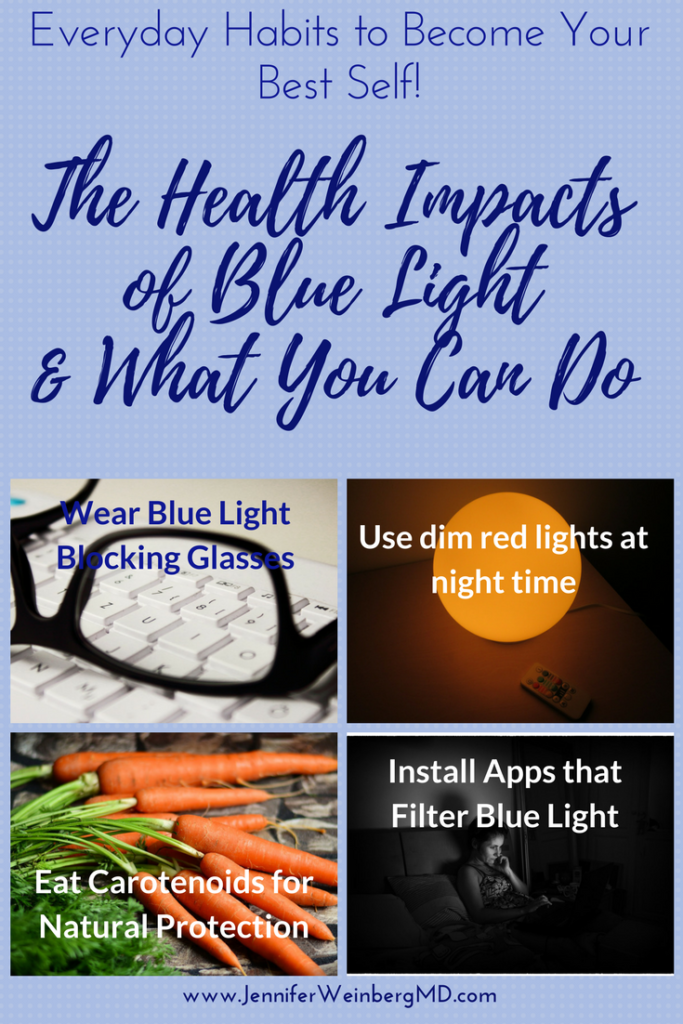
Lifestyle changes along with emerging technology like blue light blocking glasses can help you manage light exposure to benefit your health and performance. Discuss these options with your physician and eye doctor before making changes to your lifestyle or corrective lenses.
Use dim red lights at nighttime
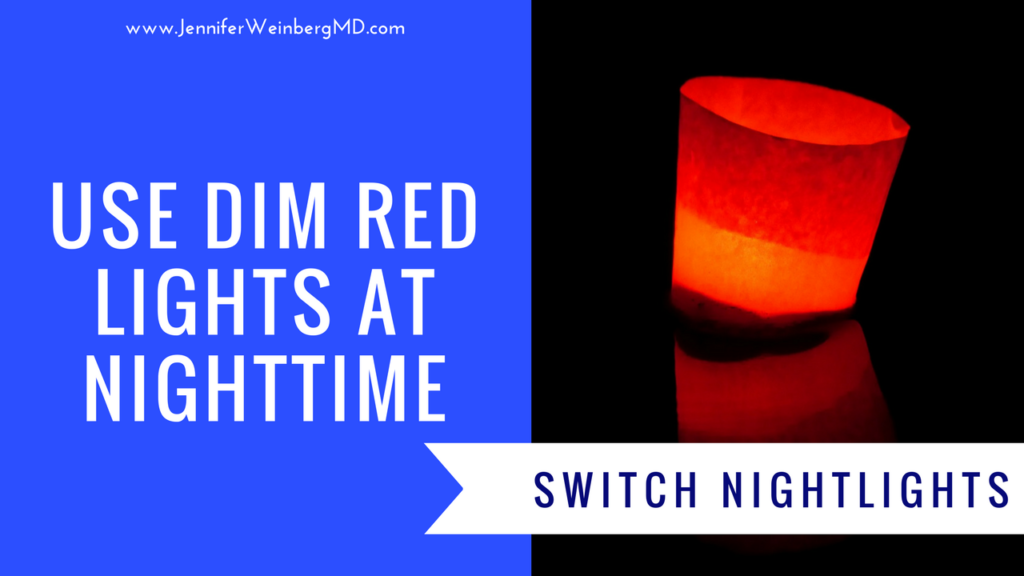
Switch your night lights to dim red lights (affiliate link) since red wavelengths of light have the least power to shift circadian rhythm and suppress melatonin. Animal studies suggest that using red rather than blue light in the evening may help to decrease the impact of light on mood, sleep and weight.
- Choose the dimmest light possible for use in the evenings, especially in bedrooms.
- Opt for a soft red glowing nightlight like this one (affiliate link) to minimize disruptions when getting up during the night.
Avoid looking at bright screens beginning two to three hours before bed
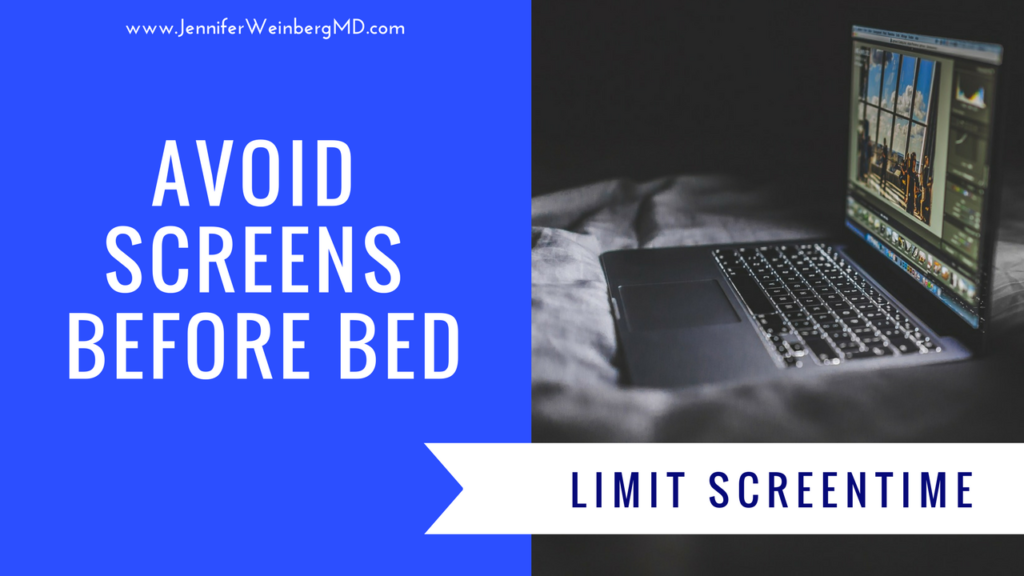
Science suggests that using an eReader, laptop, smartphone, or certain TVs before bed can be detrimental to a good night’s sleep and lead to further health problems such as obesity, diabetes, and cardiovascular disease. We know that light from screens in the evening alters levels of wakefulness and alertness and suppresses melatonin levels.
Researchers have found that iPad readers took longer to fall asleep, felt less sleepy at night and had shorter REM sleep (Chang et al, 2014) compared to printed book readers and were also more tired than book readers the following day, even if both got a full eight hours of sleep.
- Opt to read a printed book (affiliate link) in the evening instead of reading with a light-emitting device.
- Even better, switch off your bedside light and try listening to an audiobook (you can try Audible for free here) (affiliate link).
- Use voice-activation like Siri to make any phone calls or set your alarm for the next day to avoid having to stare at a screen.
Install apps that filter the blue/green short wavelengths in the evening
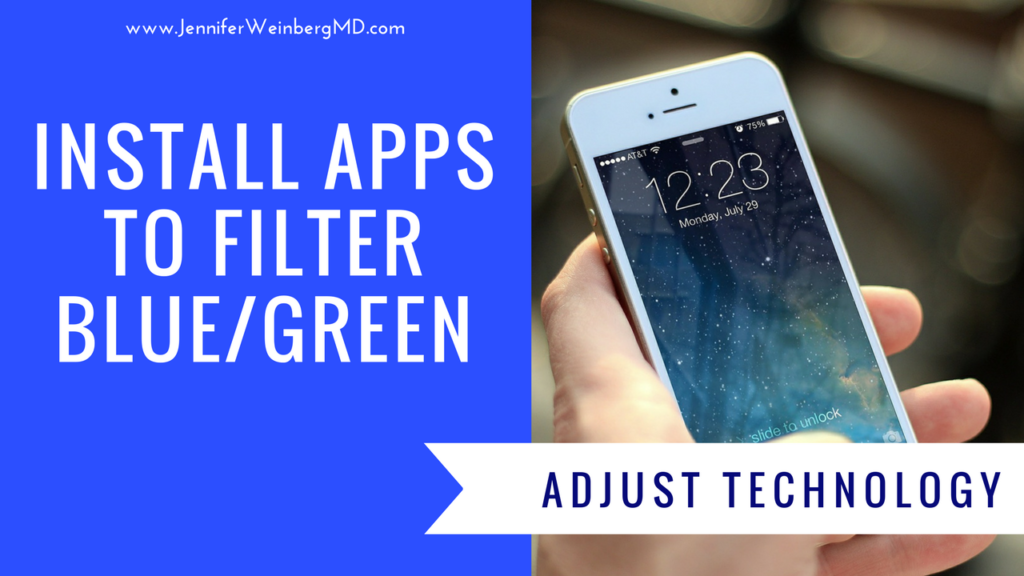
If you absolutely must use a screen in the evening, there are a few strategies that can help. One option to decrease the amount of blue-light you are exposed to when using electronic devices is to adjust your technology and use filters that block blue light.
Many smartphones and tablets include blue-light filtering apps as part of their operating systems. For example, Apple’s Night Shift is a built-in iOS app, that can be scheduled to shift to warmer, redder wavelengths of light in the evenings and back to bright, more highly blue-wavelength light in the morning.
Another option is Flux, a free software that adjusts the light of your computer to match the cycle of natural sunlight where you live, reducing brightness and blue light in the evening.
Wear blue light blocking glasses
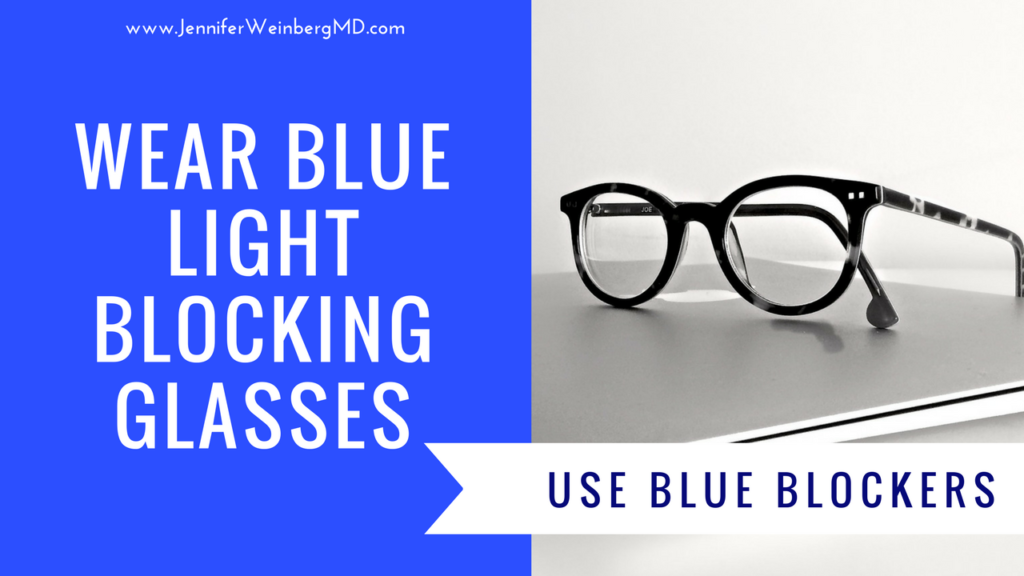
Since many of us use technology all day long, and it is not always practical to avoid technology completely after dark, I find that regularly using glasses with digital screen protection to block blue light helps to keep my hormones more balanced and improves my sleep.
Be sure to read more in this post where I explain in more detail why I wear blue blocking glasses and how they could benefit your health too!
Eat more carotenoids to boost your natural protection

Studies suggest that the consumption of natural carotenoids may help to strengthen the eye’s natural ability to block blue light. Your eye has an internal shield called the retinal pigment epithelium, a thin layer of cells near the retina which acts as a filter for blue-wavelength light. These cells contain carotenoids including lutein and zeaxanthin which help to absorb blue-light.
- Lutein and zeaxanthin are carotenoid pigments found at high concentrations in whole foods like parsley, spinach, kale, egg yolk.
- Check out my Glorious Greens for Great Health online workshop and cookbook for creative ways to incorporate more healthy greens into your diet.
- Supplementation with macular carotenoids (affiliate link) lutein and zeaxanthin has also been shown to increase macular pigment optical density and in turn reduce eye strain, eye fatigue and other visual symptoms associated with prolonged digital screentime (Stringham, Stringham & O’Brien, 2017).
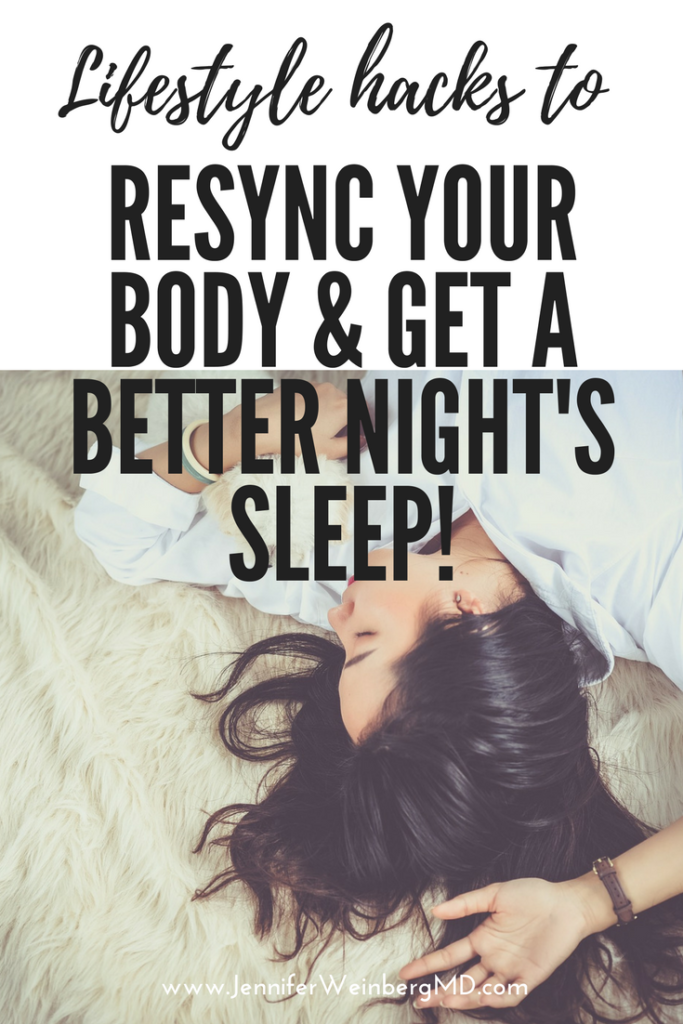
In addition to these powerful #SimplePureWholeHabits, you can help to keep your circadian rhythms in balance by taking the time to get outside and exposing yourself to lots of bright light during the day, especially natural sunlight. This can boost your ability to sleep at night as well as your mood and alertness during the day.
Do you use blue light emitting devices in the evening?
Have you tried an app to adjust the light from your technology in the evening?
I would love to have you in my Insider’s Community! Join for free and receive your FREE Chapters from The Whole Cure: 52 Essential Prescriptions to Overcome Overwhelm, Reclaim Balance and Reconnect with a Life You Love! You can pick up a full paperback or Kindle copy on Amazon (affiliate links) for a wealth of insights, exercises and complete toolkit to help you uncover your true passions, authentic purpose and calm confidence as well!
To keep building your healthy lifestyle and best self through everyday habits, take the next step today to commit to a life you truly love and feel fully alive!
-
Pick up a copy of The Whole Cure (affiliate link) to build resilience and manage stress in a way that makes life flow with greater ease and joy!
-
Access guided relaxation exercises utilizing the power of the breath and mind here.
-
Join my next online group Whole Cure Lifestyle Transformation Programs to build more powerful coping strategies and skills for meaningful stress management and a calmer life! Contact me to form your own guided online group or register for the next scheduled online program!
Medical Disclaimer: Information provided in this post and related resources are for informational purposes only. Jennifer Weinberg is not providing medical advice, diagnosis or treatment information. The information is NOT intended as a substitute for the advice provided by your physician or other healthcare professional. Every body is unique so be sure to check with your healthcare professional before making any dietary or lifestyle changes taking any medication or nutritional supplement or using any treatment for a health issue. Do not use this information provided for diagnosing or treating a health problem or disease. If you suspect you have a medical problem please contact your healthcare provider promptly and do not disregard professional medical advice based on anything on this website. This website and related resources are not intended to diagnose, treat, cure or prevent disease and do not create a doctor-patient relationship between you and Jennifer Weinberg. These statements have not been evaluated by the FDA. These products are not intended to diagnose, treat, cure, or prevent any disease.
This post was shared with: Healthy Living Link Party, SITS Saturday Sharefest

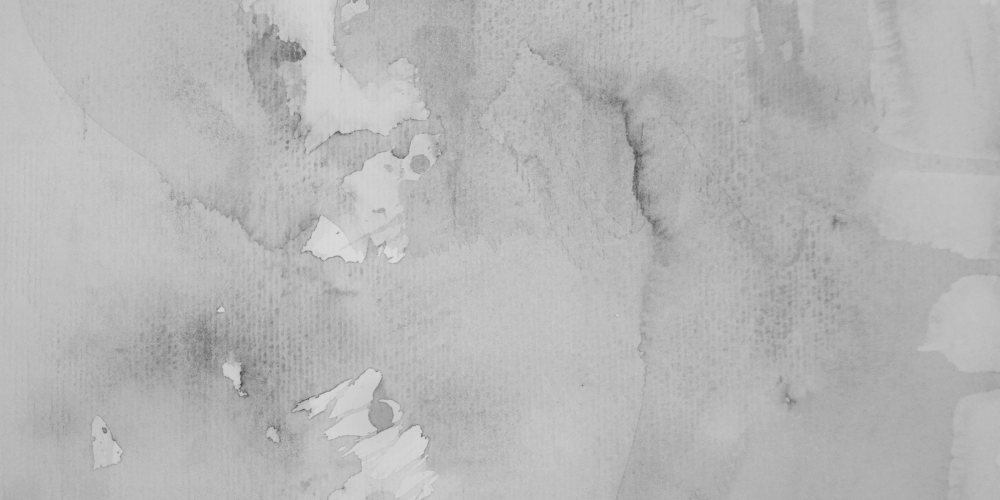
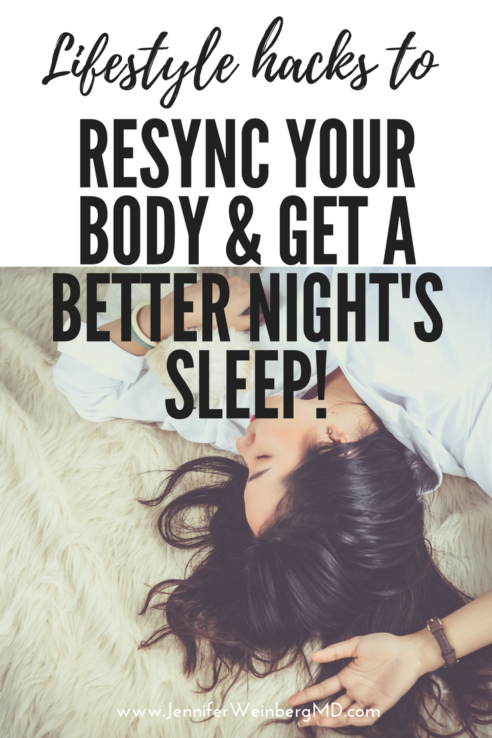
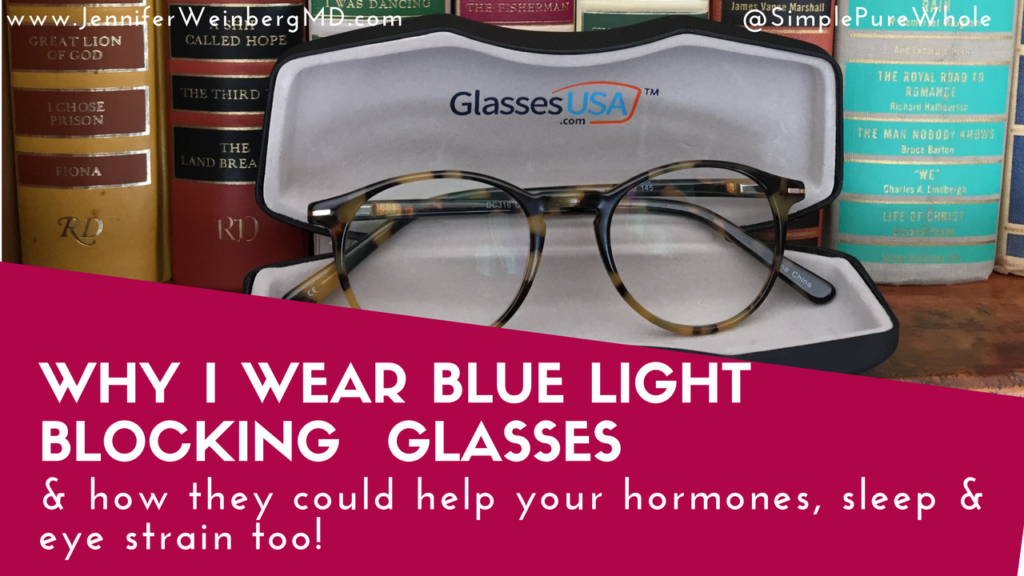

Comments